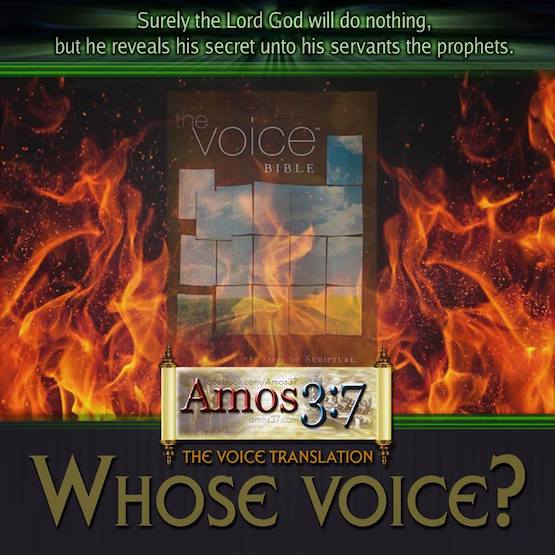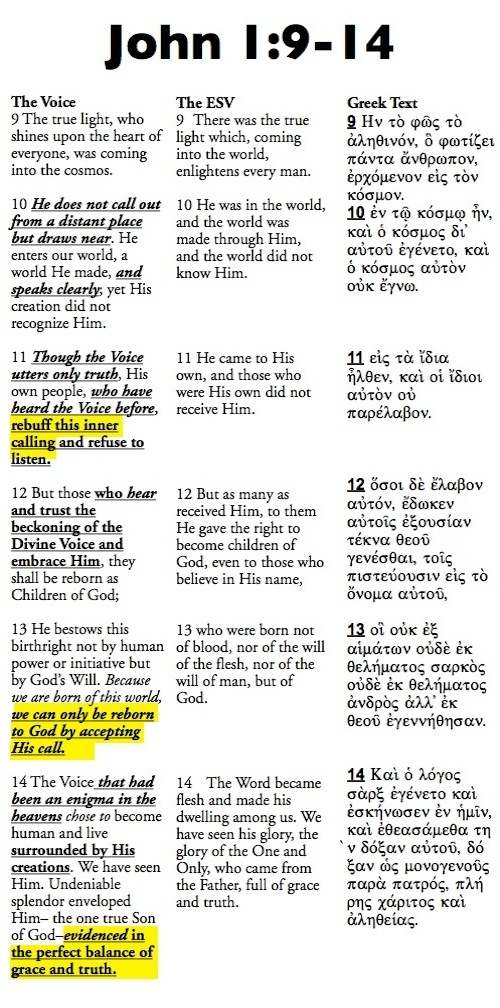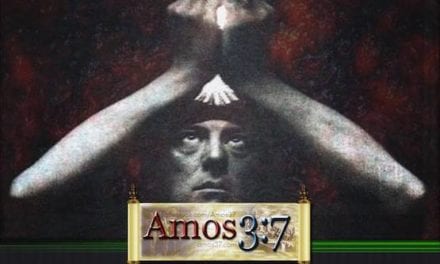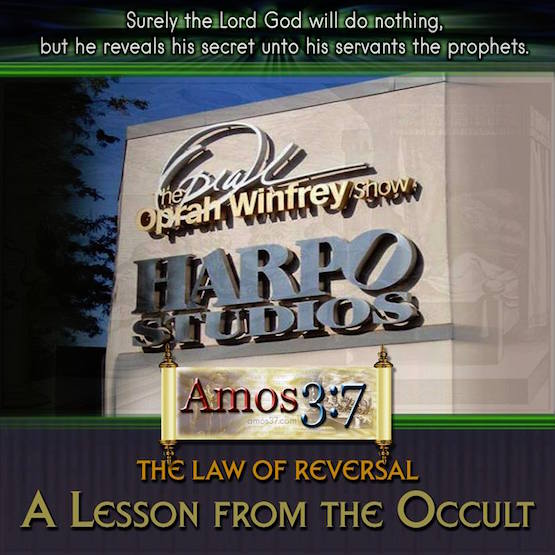Emergent church leaders such a Brian McLaren and Chris Seay in conjunction with a pack of poets, songwriters and storytellers have just released a new “translation” of the Bible that they claim is a “fresh expression of the timeless narrative known as the Bible”. The name of this fresh “translation” is The Voice and it claims to be a dynamic translation of the Bible. Unfortunately, not since the release of the Jehovah’s Witnesses’ New World Translation of the Greek Scriptures in 1950 has there been a bible published that so blatantly mangles and distorts God’s Word in order to support a peculiar and aberrant theological agenda. Please See James Sire’s Scripture Twisting Methods of the Cults
Review of The Voice New Testament – Part One
I recently purchased a copy of this fresh “dynamic translation” of Bible and spent some time doing comparative work with key passages of the New Testament from The Voice, The ESV and the Greek text. Sadly I must report that this new Emergent “translation” is so far off the mark that I think one could reasonably argue that by producing their own distorted version of the Bible the Emergent church has crossed the line from being a ‘movement’ to actually becoming a cult.
The Impact of the New Age Movement in The Church
Over the next few posts, I will review selected passages of scripture from The Voice. The passages that I’ve selected touch on important non-negotiable Christian doctrines. As you will see, The Voice inserts peculiar teachings into the text that do not belong. The end result of these ‘insertions’ is a text that obscures the gospel, distorts Jesus substitutionary work on the cross, teaches Pelagianism and promotes a liberal form of works Righteousness.
The Voice claims that it is “based on the earliest and best manuscripts from the original languages.” However, it employs the use of italicized words that the translators admit are not in the original text. They claim that those italicised “words or sentences may contain information that would have been obvious to those originally addressed in the Gospel or letter and are meant to help the reader better understand the text without having to stop and read footnotes.” It is primarily through this device that The Voice smuggles false doctrine and teaching into the Biblical text.
Note: for each passage, I will produce a side by side view of The Voice, including italics, the ESV and the original Greek. (I apologize if you don’t read Greek. As needed I will explain why The Voice is not correctly translating the Greek and will do so in a way that will be sensitive to the fact that most people don’t read Greek)
John 1:9-13 Hyperlink Tool
I’ve bolded and underlined words in The Voice that are problematic and highlighted words that are outright wrong. My commentary follows below.
Verse 10 – This verse takes a lot of unwarranted liberty with the text. There are no verbs in the greek that support their insertion of the words ‘call out’ and ‘speaks clearly’ as evidenced by the fact that The Voice uses italics for these words. Neither words are supported nor implied in the original text which leads me to ask, by what objective criteria did the translators of The Voice use to determine that these words “would have been obvious to the original readers of this Gospel?”
Verse 11 – This verse has some very serious problems. In this verse the translators of The Voice build on the originally italicized words ‘call out’ and ‘speaks clearly’ which they injected into verse 10. In verse 11 they add the idea that The Voice (their unfortunate translation of the Greek word logos) utters only truth and that people refuse to listen. Again they’ve added these words in italics but I can see no reason why we should think that the original audience would have assumed these thoughts. What is even more troubling is that the translators have Jesus speaking to us through an ‘inner calling’. This is neither supported nor implied by the Greek text yet they do not have the words ‘inner calling’ italicized.
The true theological thrust of the opening statements of the Gospel of John is the incarnation of Christ. In verse 11 John tells us that the Incarnate Word came to his own creation and his own creation did not receive him.
The Voice undermines the doctrine of the incarnation in verse 11 by turning Jesus’ coming into a “truth speaking inner calling” that people have rebuffed. The scriptures NO WHERE speak of a ‘truth speaking inner calling’. This verse injects foreign and false Eastern mystical concepts into the Gospel of John that cannot be supported from the original languages. This idea of a ‘truth speaking inner calling’ undermines the incarnational points of John’s opening statements in his Gospel.
For the record, God speaks to us through his written word not through ‘truth speaking inner callings’.
Verse 12 – This verse builds off of the disembodied ‘inner calling’ that was injected in verse 11 and says that we are reborn as Children of God if we hear and trust the disembodied Divine Voice and embrace Him.
Verse 13 – This verse wrongly inserts the words “we can only be reborn to God by accepting His call.” Even though these words are italicised, this is a VERY serious error and insertion. Not only can this not be supported from the original languages, the Greek text itself categorically rules out the possibility that humans can ‘accept His call’.
In verse 13, the Apostle John under the inspiration of the Holy Spirit writes of the new-birth that “oude ek thelematos sarkos oude ek thelematos andros”. Simply translated this statement says tht the new birth is NOT “of the will of the flesh or the will of man”. These words utterly rule out the possibility that man can choose, will or accept the call of God.
By adding the words “we can only be reborn to God by accepting His call” the translators of The Voice have inserted the Pelagian heresy into the text of scripture. They may attempt to defend this by pointing out that the words were italicized. But that defense would not fly because the translators claim that the italicized words would have ‘been obvious’ by the originally intended audience of the gospel. Since the translators italicized words that outright contradict the clear teaching of the passage itself there is no way that these inserted words would have been obvious to the original readers. As you can see these italicized words are clearly being abused in a way that obscures the real meaning of the passage.
Verse 14 – The Voice again adds very bizarre mystical concepts into this passage that cannot be supported by the text. The italicized words “The Voice had been an enigma in the heavens” are not only absent from the original text, they end up obscuring the simple and poetical language of John’s narrative that reveal that God became flesh and dwelt among us. Notice also that The Voice widens the idea that God dwelt among us (which focuses on humanity) to instead say that He chose to “live surrounded by His creations”. (These words should have been italicized but are NOT)
This mis-translation takes the emphasis off of Christ’s mission to and among fallen humanity and blurs it by making Him generically dwell among His creations. This mis-translation takes the joy out of the incredibly good news that God was incarnate and dwelt among fallen humanity.
Also, The Voice’s words ‘evidenced in the perfect balance of grace and truth’ makes Jesus out to be some type of Eastern holy man who gives us the perfect example of the perfect balance of grace and truth. This is worlds apart from what the Apostle John actually says when he states that Jesus was FULL of or filled (pleres) with grace and truth. The differences between the two concepts cannot be understated.
The Apostle John provides us with this incredible picture of God coming to fallen humanity in the flesh and full of grace and truth (one can scarcely miss how John’s description of Jesus’ coming sounds like a loving and caring father who has returned from a long trip away from his children and he’s loaded with love and hugs and presents for his children) while The Voice’s translation keeps Jesus locked in enigma as some type of guru that embodies the “perfect balance” of grace and truth.
This passage is just one of scores of passages that this new Emergent ‘translation’ of the scriptures completely biffs.
I will provide further examples of the Voice’s duplicity in the days ahead.
Connect with Amos37
Free Resources for the growing Christian.
“But grow in grace, and [in] the knowledge of our Lord and Saviour Jesus Christ. To Him [be] glory both now and for ever. Amen.” 2 Peter 3:18
Blue Letter Bible Free Online Bible & Study Tools & Commentaries
Bible Classes College Level For Free to Enroll Track your progress.
Our Own Free Discipleship Course In Video HD.





















The picture for this is wrong. The picture should have UNCLE SAM subduing the Statue of Liberty. Because it is UNCLE SAM who’s name is BENEDICT ARNOLD who is part of all the Antichrists. It is government, religion and the secret societies who tell government what to do who are all 3 the Antichrists.
There is no Antichrist. But there is The “One Male” of whom the Antichrists fear because he is their down fall and is HERE and NOW to free us all from their control through false belief. He WILL have us come to KNOW. Oh listening to this video ha ha god has nothing to do with the true trinity. The true trinity is Christ and has nothing to do with god who is no more.
“The Secret and the Truth of the Ages”book by Mark Cordova can truly explain all of this. Or check out his pod casts on you tube. Peace…..
Mark, Thanks for the sales pitch. We recommend your book for starting fires to stay warm and cook. Therefore it could be actually useful. Other than that just another Satanic propaganda. We urge you to repent and believe the gospel.
Gnosticism is a smoke n mirror ploy of the evil one “…ye shall be like god” The original lie.
see more @ https://amos37.com/2011/02/28/gnosticism-exposed/
Then you shall know real peace.
Speaking of New Age Bibles, I suggest a great book by Dr. Gail Riplinger, New Age Bible Versions. It exposes all of the Bible versions except for the AV 1611 King James Bible and their severe mistranslations…and that includes the ESV. It also exposes the heretics Westcott and Hort who mutilated the King James and replaced it with a Theosophical bible if you will; all with the agenda, whether they were conscious of it or not, in preparing Christians to accept the one world government.
For example:
http://av1611.com/kjbp/charts/themagicmarker.html
Also:
http://www.jesus-is-savior.com/Bible/esv.htm
And:
https://www.youtube.com/watch?v=c1d13yASL-o
Finally:
http://www.jesus-is-savior.com/Bible/wh-heretics.htm
http://www.1611kingjamesbible.com/manuscripts.html/
Read it… Great read. And there is much more today!